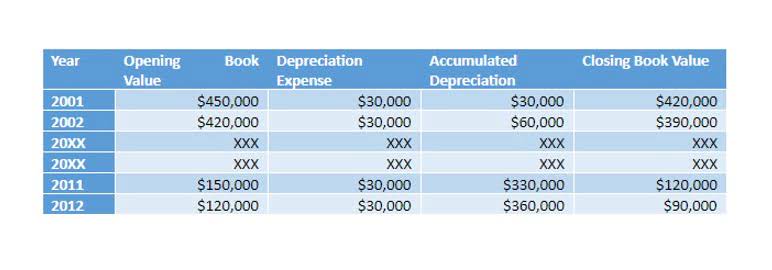By leveraging fiduciary accounting, trust and estate managers can ensure proper stewardship of assets, maintain transparency, and fulfill their fiduciary duties with integrity and diligence. Financial accounting is one of a dozen branches of accounting that follow sets of standards and practices to monitor and report on the economic health and activity of a company. Whichever method you use to track your income, Ambrook can streamline your bookkeeping, invoicing, and bill payment in an all-in-one platform designed specifically for American industry. Enterprise accounting provides detailed insights to help you identify the profitability of different segments or products.
Company Overview
For stakeholders, auditing provides assurance that the company’s financial statements are credible and reliable. Auditing is the process of examining an organization’s financial statements and related operations to ensure accuracy, compliance, and integrity. Auditors provide an independent assessment of financial records, which helps maintain trust and confidence among stakeholders. Management accounting focuses on providing detailed financial and non-financial information to a company’s management team to aid in decision-making and performance evaluation.
Example 1: Accrual Accounting
- It involves analyzing costs related to production, operations, and projects.
- Cash accounting provides a beautiful understanding of your cash flow and is helpful for very small businesses.
- While having a solid handle on your business’s finances is essential, how you track business expenses and income may differ from how other small businesses conduct their accounting.
- The fiduciary’s duty is to act in the best interest of the beneficiary, making sure everything is transparent and fair.
- Because single-entry accounting is the simplest accounting entry method, cash-basis accounting is also the simplest accounting method.
- As a result, all professional accounting designations are the culmination of years of study and rigorous examinations combined with a minimum number of years of practical accounting experience.
An accounting information system (AIS) is a computer-based method for tracking accounting activity using information technology resources. In accrual accounting, the matching principles ensures that expenses are matched to revenue in accrual accounting, meaning they’re recorded at the same time as revenue. So if a house painter has to buy paint for a job, the total income for the job and the cost of the paint are recorded in the books at the same time.
- Advanced accounting software platforms can reconcile between the two methods.
- Overhead costs are ongoing business expenses not directly attributed to creating products or delivering services.
- In contrast, financial accounting reports are highly regulated, especially the income statement, balance sheet, and cash flow statement.
- This amount will increase the cash (asset side) of the business, and will also increase its capital by the same amount, i.e., ₹1 crore.
- And several different types of financial accounting exist to manage specific business activities.
Financial Accounting vs. Managerial Accounting: What’s the Difference?
This type of accounting is crucial for both individuals and businesses to accurately calculate their tax liabilities and maximize available tax benefits or deductions. The process of tracking income and expenses across multiple farm products or profit centers is called enterprise accounting, and it’s compatible with both cash and accrual accounting. Cash accounting suits smaller-scale businesses that need straightforward financial tracking and prefer simplicity over comprehensive financial analysis. If you sell on credit, meaning you provide goods without immediate cash receipts and invoice customers later, you’re better off using another accounting method.
Method 3: Modified Cash-Basis Accounting
The best accounting software platforms can make things easier for small businesses, accountants and any professional tasked with managing finances. The following platforms will be helpful no matter bookkeeping which type of accounting you use. Standard cost accounting helps businesses find variances and investigate the reasons behind them.
Which Accounting Method Should I Use?
- All information deemed reasonably likely to impact investors’ decision-making should be reported in detail in a company’s financial statements.
- Moreover, tax accounting helps them find legal ways to reduce their payable taxes.
- Companies use this technique to assess their internal operations strategically.
- Public accounting firms typically offer opportunities for promotion and pay increases.
- With 7 AI patents, 20+ use cases, FreedaGPT, and LiveCube, it simplifies complex analysis through intuitive prompts.
- The cash accounting method is used, but accrual accounting accounts for all transactions that comprise a company’s operating activities.
There are different branches of accounting, each serving a different purpose. The two types of accounting various accounting system helps in gathering and maintaining the records in a proper manner so that those data can be used in multiple reports. It creates a system within the business with many inherent checks to highlight the mistake or fraud. When comparing managerial accounting vs financial, you should know that managerial accounting is only used internally and does not have to follow GAAP, IFRS, or any other external reporting standards. Both financial and management accounting rely heavily on ethical considerations.
- The standardized reporting allows all stakeholders and shareholders to assess the performance of a business.
- This is because the government uses these reports to assess a company’s tax status and legal records.
- Cash accounting reports revenues and expenses as they are received and paid through cash inflows and outflows.
- The third step is to summarize the transactions into financial statements such as the balance sheet, income statement, and cash flow statement.
- Therefore, the primary key difference between the two are the ultimate purpose of the study.
- In simple words, an organization should not waste its time on immaterial facts that do not help in determining its income for the period.
This guide covers the seven benefits of understanding the different types of accounting. Then, it highlights the 12 different types of accounting, and how to choose the right ones for your business. She noted that financial accounting plays a crucial role in the economy, providing essential information to investors, creditors, analysts and other stakeholders. “Its primary https://ayanlarflake.com/understanding-intangible-assets-definition/ goal is to provide management with accurate cost information that can be used for decision-making, cost control, and performance evaluation,” she said. Accounting is by far one of the most important and prevalent fields in the world today. Its use in organizing business transactions and meeting regulatory requirements makes it a field that requires extensive knowledge and study.
He’s a co-founder of Best Writing, an all-in-one platform connecting writers with businesses. He has built multiple online businesses and helps startups and enterprises scale their content marketing operations. He worked with TIME, Observer, HuffPost, Adobe, Webflow, Envato, InVision, and BigCommerce. If a business generates more than $25 million in average annual gross receipts for the preceding three years, however, it must use the accrual method, according to IRS rules.
Financial accounting is the branch of accounting focused on recording, summarizing, and reporting a company’s financial transactions. Its primary purpose is to provide an accurate and standardized overview of a business’s financial performance and position over a specific period. This information is compiled into financial statements, such as the balance sheet, income statement, and cash flow statement. Financial accounting records, summarizes and reports a company’s business transactions through financial statements.





